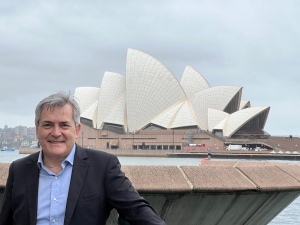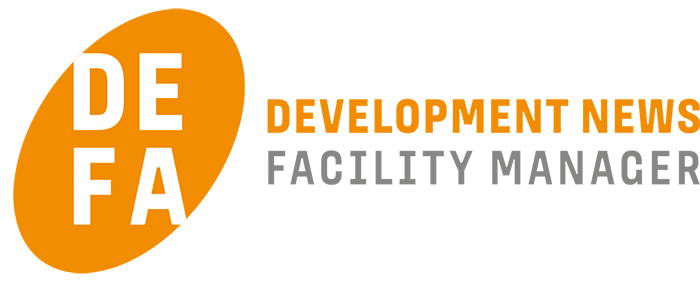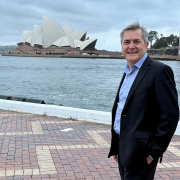Insight into Australia
Stephen is a director of In-Touch Advisory, a specialist consulting firm that connects stakeholders with life cycle solutions for the Built Environment.
Stephen is currently an Australian delegate for the ISO international FM standards initiative (ISO 41000 since 2012), serves on the Chair’s Advisory Group (CAG), and is the ISO/TC-267’s global liaison to ISO/TC-251 (ISO 55000 asset management since 2015).
In 2021 he was appointed to the board of IFMA’s FM Consultant Council (FMCC) as the Regional Director Australasia.
Before establishing In-Touch Advisory in 2018, Stephen was a director of Rider Levett Bucknall with 120 offices worldwide, serving concurrently as both their Head of Advisory and Head of Research & Development.
Stephen is a former member of the IFMA Board of Directors and Past Chair of the IFMA Research Committee; the IFMA Foundation; and FMA Australia. He is also the former Deputy Chairman of the Australian Government’s FM Action Agenda, and led the award-winning FM Exemplar Project: Sydney Opera House. In 2011 he was inducted as FMA Australia’s 9th Life Member (fellow), received IFMA’s 2014 International Distinguished Member Award and in 2018 became the first recipient in the Oceania region of an IFMA Fellowship.
 How long have you been working in the field of facility management?
How long have you been working in the field of facility management?
I have worked within the Built Environment as a professional services consultant for 40-years, commencing in 1981 as a cadet Quantity Surveyor / Construction Cost Consultant with Rider Hunt & Partners.
When and how did you discover this profession?
In 1992, as managing director Rider Hunt Levett & Carey in California, I attended my first IFMA event in San Francisco.
In 1994, upon returning to Australia to establish Rider Hunt Terotech, a property asset management consultancy, I became heavily involved with the FMA Australia.
How would you describe the change in facility management during your professional career, where is facility management today?
I think of the development of FM over recent decades in terms of three broad ‘leadership‘ waves:
1) the emergence of systems furniture solutions in the 1980’s;
2) the evolution of design / strategic / technology applications during the 1990‘s; and
3) then the rise of outsource service providers, by the early 2000‘s.
This experience varies from place to place, and of course, all three and other influences co-exist.
Today, FM is a dynamic management profession that integrates people, places and processes and is the foremost contributor to a more productive, sustainable and liveable Built Environment for all to improve our quality of life.
Have you recently been interested in an interesting project, interesting technology, innovations or procedures in facility management, or unusual cooperation between the customer and the FM service provider?
One of the most exciting innovation in recent years that I have been involved in has been the development of the ISO 41000 series of FM standards. There are currently 51 countries involved, with five (5) standards published and seven (7) publications under development.
Continuing my work with the ISO/TC267’s Sustainable Development Goals Task Group (SDGTG) in 2020, I’m now the project lead on the development of ISO/TR 41019 to examine the role of FM in sustainability and resilience via the alignment of the ISO 41000 series of FM standards and the UN’s SDGs (sustainable development goals) and the implications for FM worldwide.
We discuss the importance of the facility manager for your organization. How is the position and role of the facility manager perceived in your country? What is his current position in the company management hierarchy?
I’m the owner and principal consultant at In-Touch Advisory, we maintain a small team of specialists and contractors. As a Cost Professional and an FM Consultant, this question does not directly apply to me.
However, our clients include those investing in, owning, managing, and occupying a wide range of facilities. Our advisory services generally involve the strategic FM aspects, life cycle planning, CAPEX budgeting, project management, services procurement, asset acquisition, due diligence and performance auditing.
What did the last pandemic year mean for facility management?
COVID-19 has posed many challenges for the facilities management sector since early 2020, and will continue to do so for the foreseeable future.
In Australia, like elsewhere, we have experienced rolling restrictions and lockdowns that have closed workplaces or seen the majority of staff working from home. Notwithstanding that COVID has impacted various sectors differently, from commercial offices to health facilities. Despite construction projects continuing, there have generally been fewer property transactions, portfolio rationalisations and project commencements, and existing facilities services reducing to all but essential maintenance, varied infrastructure service demands and increased screening and cleaning activity for occupied facilities.
Reopening provides additional FM requirements to make facilities COVID-19 safe, re-commissioning building systems and embrace the need for initial deep-cleaning, more stringent regular cleaning and revised density and operational protocols in compliance with the ‘new normal’ once defined. This could impact building systems operations, service contractor planning and change management to ensure they are safe and appropriate to future demand, utilisation and occupancy levels.
Do you have any awareness of facility management in the Czech Republic or Central and Eastern Europe?
Some, through my international consulting experience, volunteer IFMA service, participation in ISO standards and industry events. However, I would not claim specific expertise on FM in the Czech Republic.
Did you meet some facility managers from these countries and how did you perceive their expertise?
FM’ers are the best, regardless of their location, they are amongst the most passionate and professional contributors, always ready to learn, share and make a difference.
What advice would you advise facility managers in the Czech Republic?
Embrace the ISO 41000 series of FM standards as representing international consensus on FM best practices. The importance of what you do is embodied in the FM definition: an “organizational function which integrates people, place and process within the Built Environment with the purpose of improving the quality of life of people and the productivity of the core business” (ISO 41011: 2017).
Do you have a life credo?
”Always leave it better than you found it“.
Thank you for the time and your experience with which you shared with us and we look forward to the opportunity to invite you to our Czech Republic when the current non-standard time passes.
Ondřej Štrup, IFMA Fellow




Leave a Reply
Want to join the discussion?Feel free to contribute!